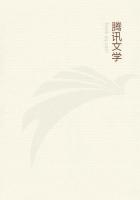Scraps of food were thrown to them from the galleries;these were speedily devoured, but were altogether inadequate in quantity to meet the demand. At length, emboldened by hunger, several hundred birds ventured through the tunnel, and took up their quarters actually in Nina's Hive. Congregating in the large hall, the half-famished creatures did not hesitate to snatch bread, meat, or food of any description from the hands of the residents as they sat at table, and soon became such an intolerable nuisance that it formed one of the daily diversions to hunt them down;but although they were vigorously attacked by stones and sticks, and even occasionally by shot, it was with some difficulty that their number could be sensibly reduced.
By a systematic course of warfare the bulk of the birds were all expelled, with the exception of about a hundred, which began to build in the crevices of the rocks.
These were left in quiet possession of their quarters, as not only was it deemed advisable to perpetuate the various breeds, but it was found that these birds acted as a kind of police, never failing either to chase away or to kill any others of their species who infringed upon what they appeared to regard as their own special privilege in intruding within the limits of their domain.
On the 15th loud cries were suddenly heard issuing from the mouth of the principal gallery.
"Help, help! I shall be killed!"
Pablo in a moment recognized the voice as Nina's. Outrunning even Ben Zoof he hurried to the assistance of his little playmate, and discovered that she was being attacked by half a dozen great sea-gulls, and only after receiving some severe blows from their beaks could he succeed by means of a stout cudgel in driving them away.
"Tell me, Nina, what is this?" he asked as soon as the tumult had subsided.
The child pointed to a bird which she was caressing tenderly in her bosom.
"A pigeon!" exclaimed Ben Zoof, who had reached the scene of commotion, adding:
"A carrier-pigeon! And by all the saints of Montmartre, there is a little bag attached to its neck!"He took the bird, and rushing into the hall placed it in Servadac's hands.
"Another message, no doubt," cried the captain, "from our unknown friend.
Let us hope that this time he has given us his name and address."All crowded round, eager to hear the news. In the struggle with the gulls the bag had been partially torn open, but still contained the following dispatch: "Gallia!
Chemin parcouru du 1er Mars au 1er Avril: 39,000,000 1.!
Distance du soleil: 110,000,000 1.!
Capte Nerina en passant.
Vivres vont manquer et . . ."
The rest of the document had been so damaged by the beaks of the gulls that it was illegible. Servadac was wild with vexation.
He felt more and more convinced that the writer was a Frenchman, and that the last line indicated that he was in distress from scarcity of food.
The very thought of a fellow-countryman in peril of starvation drove him well-nigh to distraction, and it was in vain that search was made everywhere near the scene of conflict in hopes of finding the missing scrap that might bear a signature or address.
Suddenly little Nina, who had again taken possession of the pigeon, and was hugging it to her breast, said:
"Look here, Ben Zoof!"
And as she spoke she pointed to the left wing of the bird.
The wing bore the faint impress of a postage-stamp, and the one word: "FORMENTERA."















